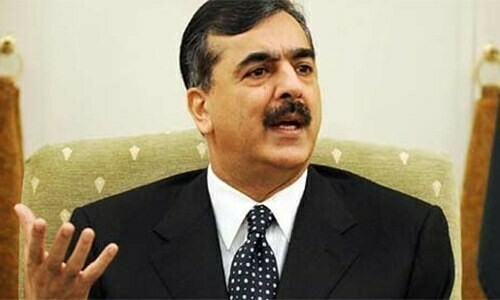SARTAJ Aziz, adviser to the prime minister on foreign affairs, is no amateur or wide-eyed newcomer to foreign policy. So when Mr Aziz decides to speak frankly to a US think-tank audience about the leverage that the Pakistani state has over the Afghan Taliban, it is hoped that a great deal of thought went into the revelations.
To be sure, what Mr Aziz has claimed — that sections of the Afghan Taliban leadership reside in Pakistan and that Pakistan has nudged those leaders to the negotiating table by threatening to restrict their movement, withholding access to medical facilities and clamping down on family life — is neither surprising nor new.
Indeed, the leverage that Mr Aziz described is in line with what American officials in particular demanded that Pakistan use in early 2014, when the push for talks with the President Ashraf Ghani-led Afghan government was first made. But the question remains: why now?
First, however, Mr Aziz’s candour ought to be welcomed. For years Pakistan has clung publicly to an unrealistic, untrue and untenable position — that the Afghan Taliban leadership is predominantly based inside Afghanistan and that the Afghan government was shifting blame for its failures to limit the Taliban’s activities onto Pakistan.
Second, the full range of Mr Aziz’s words in Washington needs to be considered. The foreign adviser stressed that both in the past and in the present, Pakistan’s influence with the Taliban has its limits — that, effectively, the Afghan Taliban do what is in their own interests and Pakistan cannot dictate policies to them.
Perhaps, then, Mr Aziz was trying to correct the historical record while simultaneously trying to impress on interlocutors — in Afghanistan, the US and China — the real-world limits of Pakistani influence with the Taliban.
That approach has a possible dual benefit: it prevents the Afghan government from automatically blaming Pakistan and puts the onus on Kabul to make talks successful.
What remains to be seen is the extent to which the army-led security establishment here backs Mr Aziz in his risky approach. Silence in the coming days and weeks will be interpreted as an implicit endorsement of the foreign adviser’s stance. That would be welcome on two levels.
First, it would suggest that the military and civilian sides of the state are in fact able to work together. Second, it would indicate that the old culture of secrecy and denial in the ranks of the military leadership may be changing.
Published in Dawn, March 5th, 2016










































